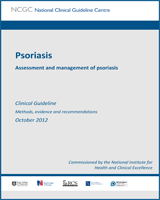From: 14, Cognitive behavioural therapy

Apart from any fair dealing for the purposes of research or private study, criticism or review, as permitted under the Copyright, Designs and Patents Act, 1988, no part of this publication may be reproduced, stored or transmitted in any form or by any means, without the prior written permission of the publisher or, in the case of reprographic reproduction, in accordance with the terms of licences issued by the Copyright Licensing Agency in the UK. Enquiries concerning reproduction outside the terms stated here should be sent to the publisher at the UK address printed on this page.
The use of registered names, trademarks, etc. in this publication does not imply, even in the absence of a specific statement, that such names are exempt from the relevant laws and regulations and therefore for general use.
The rights of National Clinical Guideline Centre to be identified as Author of this work have been asserted by them in accordance with the Copyright, Designs and Patents Act, 1988.
NCBI Bookshelf. A service of the National Library of Medicine, National Institutes of Health.